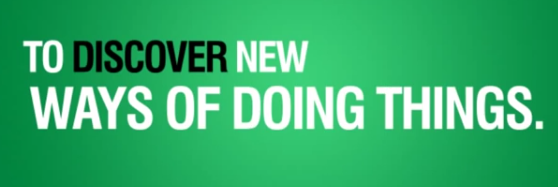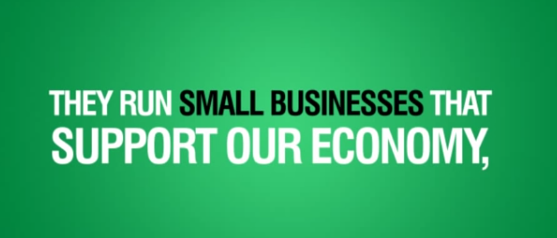I sent this message to several teachers...
Here are two responses that Enrique Gonzalez gave me.
Here is what Dennis Yuzenas sent me: a WORTHWHILE post to examine and show to students. It's the FOUR WAYS THAT STUDENTS USE TO QUIT
FROM WES GREEN
Relevance is subjective. And I think education should—at least to some extent—be objective. Shakespeare may not be relevant to most kids anymore. Ditto for American History and foreign languages. Education should—in large part—be about teaching us how to think. And that means exposing us to ideas we may not find compelling. If all we learn is what we feel like learning, then our possibilities will always be hampered by a limited perspicacity, ¿no?
DEAR PANEL
the above statement comes from Wes Green, an excellent mentor and serial entrepreneur and defender of “good education.”
He’s an armchair philosopher, entrepreneur and taxpayer, and I have learned much from him ….
To Wes...
I like the discussion about education, particularly with an “educationalist” and not a professional educator. You are a taxpayer and you are interested in education.
I’m adding two authorities on Littky’s material to this discussion plus other teachers I respect.
To the panel. I request the following two minutes from you. Wes Green is a product of an objective definition of education… can you reply to his concerns? (and a lifelong learner, too. I greatly respect the road he took to developing his mind)
How can we personalize learning and still get the important stuff into the head of the kids? My response is to quote Robert Reich from page 34 of The Big Picture.
What’s more, especially in today’s world, there is no “one set of knowledge.” Former U.S. Secretary of Labor Robert B. Reich titled a 2000 article he wrote for The New York Times “One Education Does Not Fit All.” In it, he railed against the use of standardized tests and courses as inconsistent with the new economy. I literally jumped out of my seat with joy when I read this part:
Yes, people need to be able to read, write, and speak clearly. And they have to know how to add, subtract, multiply, and divide. But given the widening array of possibilities, there’s no reason that every child must master the sciences, algebra, geometry, biology, or any of the rest of the standard high school curriculum that has barely changed in half a century.
There is no reason to put education in standardized packages when our kids don’t come in these packages. Who wants a standardized kid, anyway? As a society, we embrace individualism, and yet we seem to be OK with our schools becoming more and more standardized.
page 34 in The Big Picture by Dennis Littky with Samantha Grabelle, ASCD.org (2004)
==========================
I wonder if Enrique, Jodie, Mario, Matt or Dennis have other ways of pointing out the power of projects to make history RELEVANT to the individual. (One aspect of the Littky system is that kids GO DEEP into some narrow area that appeals to them, and many of them end up with a wider perspective because we tend to find connections to the First World War and the Crimean War and the Communist Manifesto and the 1848 politics when we look at the origins of World War 2…. so a kid who is obsessed with The Ballte of The Bulge or Normandy Invasion might end up reading about the Charge of the Light Brigade…. but by reading history BACKWARDS and through personal connections.) That’s why I respect the work of Matt Blazek and the Big Picture, because personalizing leads to creating the the educated person who is a lifelong learner.
Let’s see what Enrique, Jodie, Matt. Mario and Dennis reply...
Steve McCrea
On Apr 30, 2014, at 1:18 AM, Wes Green <wesgreen95@gmail.com> wrote:
Well, as I said, I have a problem with relevance. But that's just me. Relevance is subjective. And I think education should—at least to some extent—be objective. Shakespeare may not be relevant to most kids anymore. Ditto for American History and foreign languages. Education should—in large part—be about teaching us how to think. And that means exposing us to ideas we may not find compelling. If all we learn is what we feel like learning, then our possibilities will always be hampered by a limited perspicacity, ¿no?
Here are two responses that Enrique Gonzalez gave me.
We wander the wasteland assuming that there is hope….The reality is that until the teacher prep programs in this country change we are captive to their product. The media gives us little chance of offering the “real” alternative….Value added education to the family of each learner based on the “passion” for each learner. Rote memorization, (SAT, ACT,MRE…etc.) drives all to insure and protect their position, (job) by API, AYP etc… Therefore the learner hasn’t got a chance to express, develop, invent and inspire their circle. I, as you all, will be Sysiphus in this so called education world. But the reward lies not in fighting the system. But in the eyes and lives of those we are fortunate enough to lead to real learning as they chase their passions in whatever educative environment we can provide…..
Adelante hasta la victoria - Si se Puede!
AND HERE'S ANOTHER RESPONSE BY ENRIQUE
When you study what you desire it's called learning. So it follows that we must be the assistants to the learning by putting their hands and spirit in all they do. That would obviously be relevant to the learner. Teach me to make a bow and I can eat. Teach me to make a flute and I can sing.......teach me to think in my world and I can do anything !
Here is what Dennis Yuzenas sent me: a WORTHWHILE post to examine and show to students. It's the FOUR WAYS THAT STUDENTS USE TO QUIT
This is what Dennis Yuzenas sent me…
GIVE A CLICK to this BLOG POST: CLICK HERE
WHAT STUDENTS REALLY NEED TO HEAR
It’s 4 a.m. I’ve struggled for the last hour to go to sleep. But, I can’t. Yet again, I am tossing and turning, unable to shut down my brain. Why? Because I am stressed about my students. Really stressed. I’m so stressed that I can only think to write down what I really want to say — the real truth I’ve been needing to say — and vow to myself that I will let my students hear what I really think tomorrow.
This is what students really need to hear:
First, you need to know right now that I care about you. In fact, I care about you more than you may care about yourself. And I care not just about your grades or your test scores, but about you as a person. And, because I care, I need to be honest with you. Do I have permission to be honest with you — both in what I say and how I say it?
Here’s the thing: I lose sleep because of you. Every week.
Before I tell you why, you should understand the truth about school. You see, the main event of school is not academic learning. It never has been. It never will be. And, if you find someone who is passionate in claiming that itis about academics, that person is lying to himself or herself and may genuinely believe that lie. Yes, algebra, essay writing, Spanish, the judicial process — all are important and worth knowing. But they are not the MAIN event.
The main event is learning how to deal with the harshness of life when it gets difficult — how to overcome problems as simple as a forgotten locker combination, to obnoxious peers, to gossip, to people doubting you, to asking for help in the face of self-doubt, to pushing yourself to concentrate when a million other thoughts and temptations are fingertips away.
It is your resilience in conquering the main event — adversity — that truly prepares you for life after school. Because, mark my words, school is not the most challenging time you will have in life. You will face far greater challenges than these. Sure, you will have times more amazing than you can imagine, but you will also confront incomparable tragedy, frustration, and fear in the years to come.
But, you shouldn’t be worried about the fact that you will face great adversities. You should be worried because you’re setting yourself up to fail at overcoming them. Here’s the real reason I lose hours of sleep worrying about you: You are failing the main event of school. You are quitting. You may not think you are quitting, but you are because quitting wears many masks.
For some, you quit by throwing the day away and not even trying to write a sentence or a fraction because you think it doesn’t matter or you can’t or there’s no point. But it does. What you write is not the main event. The fact that you do take charge of our own fear and doubt in order to write when you are challenged — THAT is the main event.
Some of you quit by skipping class on your free education. Being punctual to fit the mold of the classroom is not the main event of showing up. The main event is delaying your temptation and investing in your own intelligence — understanding that sometimes short-term pain creates long-term gain and that great people make sacrifices for a greater good.
For others, you quit by being rude and disrespectful to adults in the hallway who ask you to come to class. Bowing to authority is not the main event. The main event is learning how to problem solve maturely, not letting your judgement be tainted by the stains of emotion.
I see some of you quit by choosing not to take opportunities to work harder and pass a class, no matter how far down you are. The main event is not getting a number to tell you you are worthy. The main event is pulling your crap together and making hard choices and sacrifices when things seem impossible. It is finding hope in the hopeless, courage in the chasm, guts in the grave.
What you need to see is that every time you take the easy way out, you are building a habit of quitting. And it will destroy your future and it will annihilate your happiness if you let it. Our society cares nothing for quitters. Life will let you die alone, depressed, and poor if you can’t man or woman up enough to deal with hardship. You are either the muscle or the dirt. You either take resistance and grow stronger or blow in the wind and erode.
As long as you are in my life, I am not going to let quitting be easy for you. I am going to challenge you, confront you, push you, and coach you. You can whine. You can throw a tantrum. You can shout and swear and stomp and cry. And the next day, guess what? I will be here waiting — smiling and patient — to give you a fresh start. Because you are worth it.
So, do yourself a favor: Man up. Woman up. No more excuses. No more justifications. No blaming. No quitting. Just pick your head up. Rip the cords out of your ears. Grab the frickin’ pencil and let’s do this.
– C. Mielke


































































